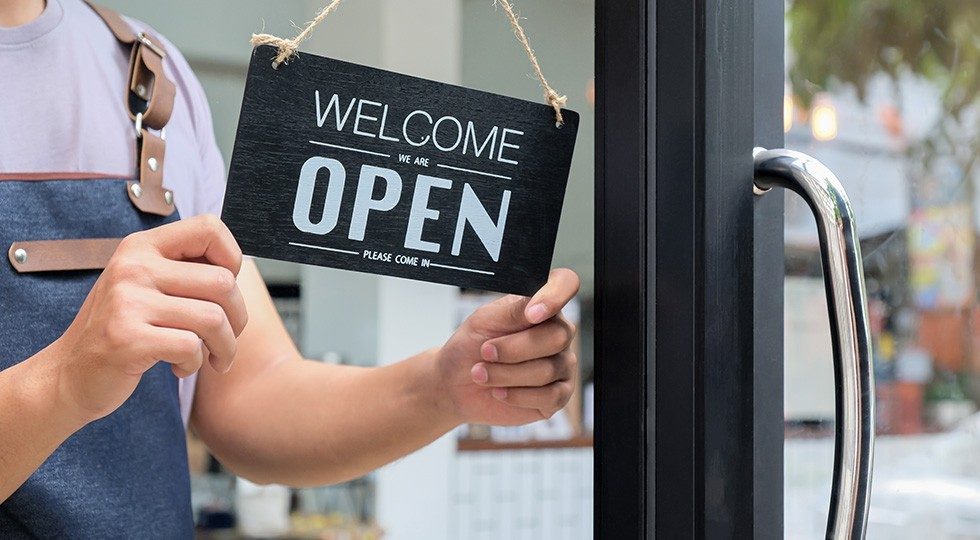Having a good idea for a new retail business is only the start of what is likely to prove a long road towards turning it into reality. Even before turning your thoughts towards opening up and welcoming your first customers, there are a lot of things you need to do.
Part of that is making sure you have the finances to get through the first weeks and months of trading. Very few retail businesses start turning a profit from day one, so you need to work out your operating costs for the first year.


Here are some of the costs you’re going to have to meet:
Rent
Rent is going to be one of your biggest expenses when opening a retail business. Rent for retail is unusual in the property market, because it’s currently going down, although when you think about it, that’s not surprising. Even before COVID, the popularity of internet shopping was adversely affecting many of our high street stores. Landlords are keener than ever to get new tenants in, and if that means lower rents, so be it.
Where you’re opening up and how long your lease is for will, of course, have a significant impact on how much you pay. It’s unlikely that you’ll want to commit yourself for too long from the outset – it is possible to get rolling monthly agreements, but owing to the uncertainty involved for the landlord, they are naturally going to be more expensive.
In the second quarter of 2021, the most expensive place to rent a shop was London’s Bond Street at an average of £2,150 per square foot per year. In other cities, average prices for the same period were £220 in Manchester, £180 in Birmingham, £140 in Cardiff and Leeds and £95 in Bristol.
Business Rates
Business rates are another of the big expenses you’ll need to meet when opening a retail store. As a rule of thumb, the amount you pay in business rates is going to be roughly half the amount you’re paying in rent. The amount is based on the ‘rateable value’ of the property in question, and you can check this on the government website by clicking here.
Insurance
As with so much in life, you’ll have to take out insurance to cover yourself against a number of things. Again, what you end up paying in insurance has so many variables that it’s impossible to come up with a ‘one size fits all’ estimate. These are some of the things you’ll need to insure yourself against, but you are likely to be able to get a single policy that will cover everything you need:
- Buildings, contents & stock
- Public liability
- Product liability
- Cyber crime (e.g. your payment system being hacked)
- Employers’ liability (if you have staff)
- Legal protection
- Stock, displays & other accessories
Even if you’re going to be selling things you’ve made, you’re still going to have to pay for the materials to make them with. Most stores, however, will need to buy in their stock from manufacturers and wholesalers and you’re going to have to get in enough to fill your store, with some extra for replenishment as you start to make sales.
And as you can’t just spread whatever it is you’re selling about on the floor, you’ll need things to display it on, whether that’s shelving, hangers, rails, cabinets etc. Then there are the other essentials, such as a till, a card payment system and so on.






Marketing
You can’t just rely on passing trade to make your new store a success. You need to let people know you’re there, so setting some money aside to promote your business should be essential. Some research suggests that in the first year you might need to spend somewhere between 12% and 20% of your predicted gross revenue, although as you gain regular customers and good word-of-mouth this should be lower in subsequent years.
If you’re tech savvy, you might be able to manage some aspects of this yourself, such as setting up a Facebook page and targeting groups with an interest in your business. Otherwise, you may need to pay for things like:
- Getting a professional website built with SEO optimisation
- Targeted advertising in trade magazines, on social media or via Google
- Printing posters and/or leaflets promoting your shop
Staff
It’s hard to run a shop all by yourself, so unless you can call on family friends to help out on occasion, it’s likely that you’re going to have to hire at least one person to work for you, even if it’s only on a part-time basis.
At time of writing, the minimum wage for those aged 23 and over is £8.91 per hour, but this will rise to £9.50 per hour from 1 April 2022, with separate lower rates for those aged 21-22, 18-20 and 16-17.


For help with sourcing the best in retail supplies when opening a new shop, you can’t do better than get in touch with the team at Morplan. With everything from display shelving and cabinets to point-of-sale, retail packaging and pricing accessories, we’re the one-stop wholesalers of choice for shop owners both new and old right across the country.
 EN
EN


